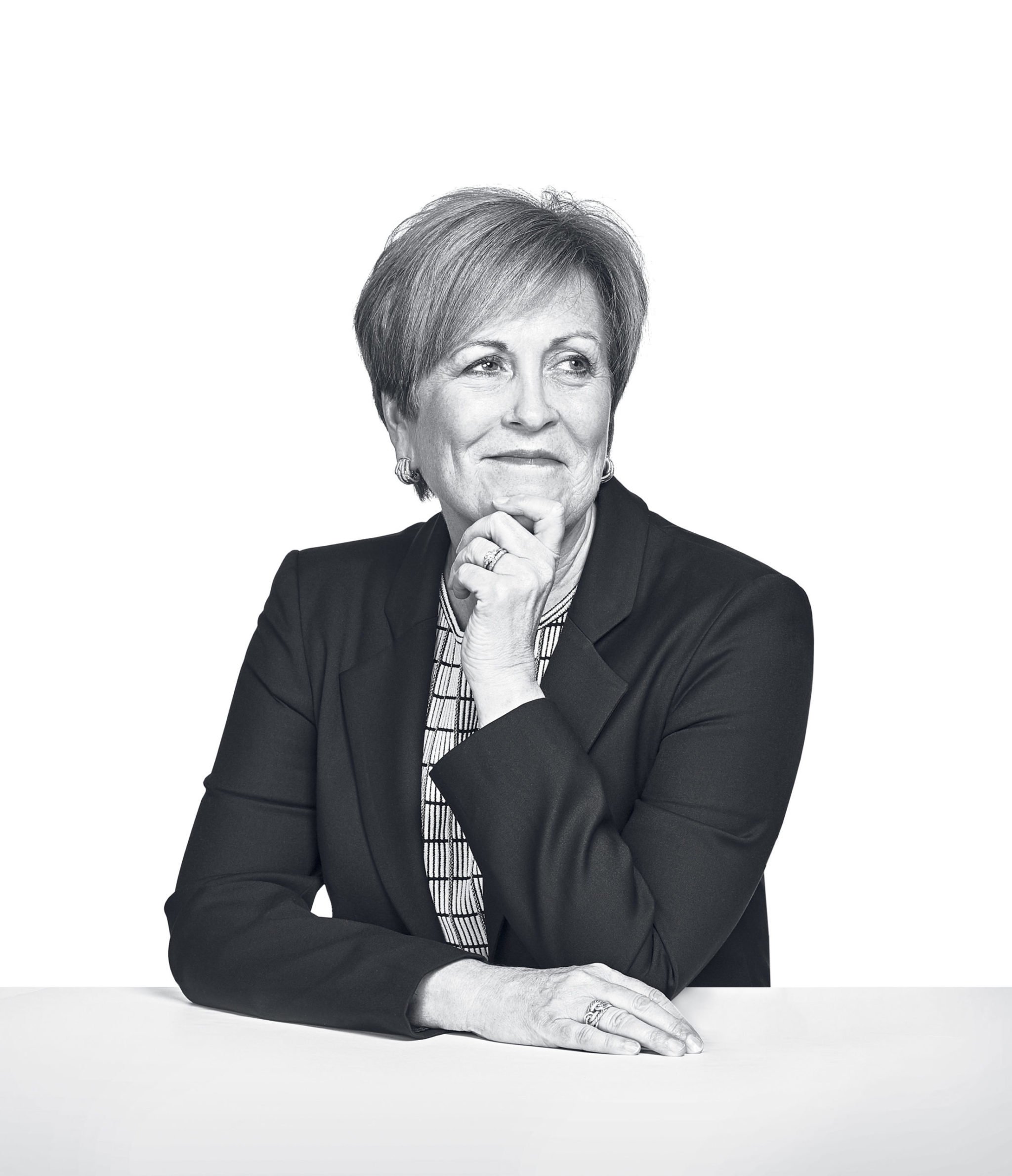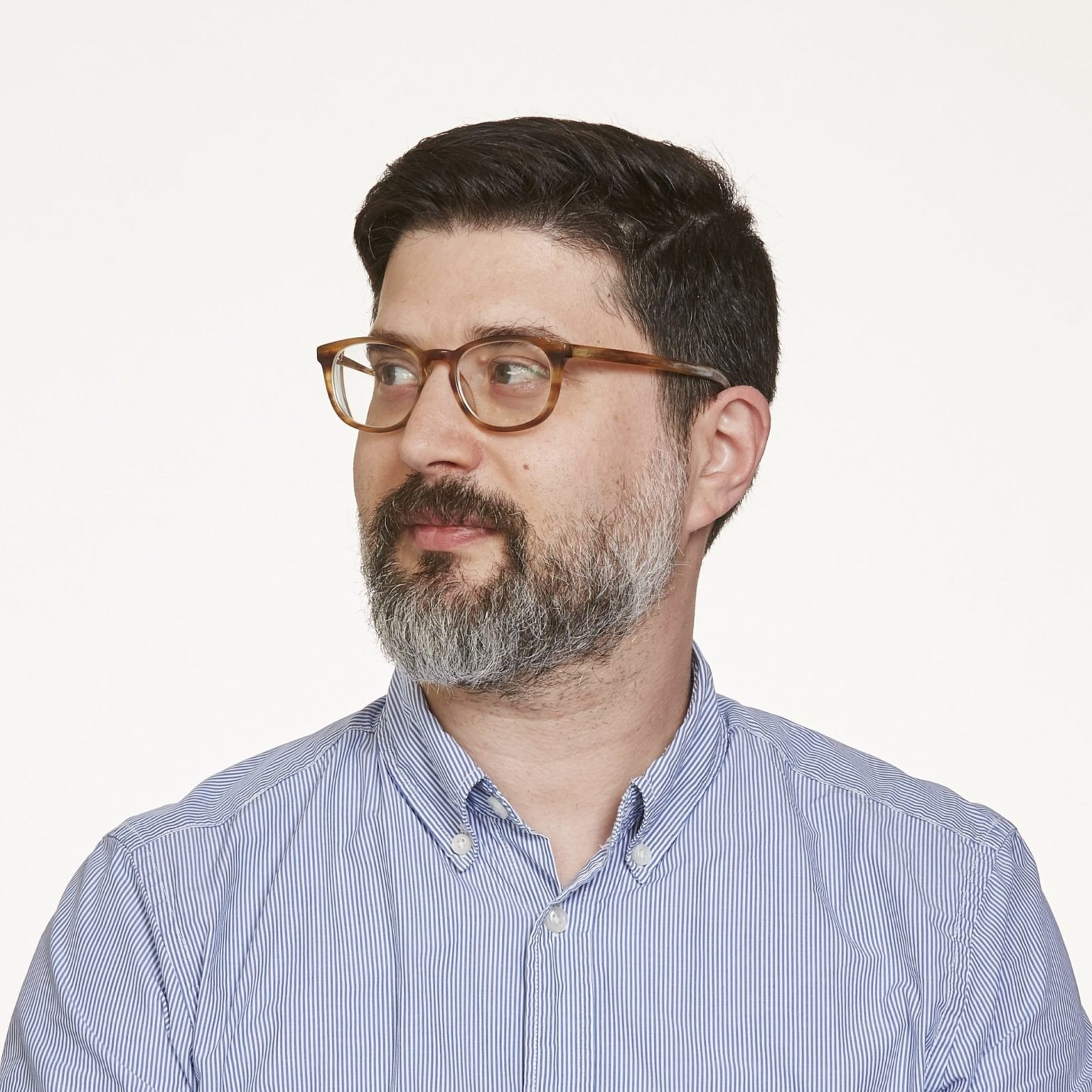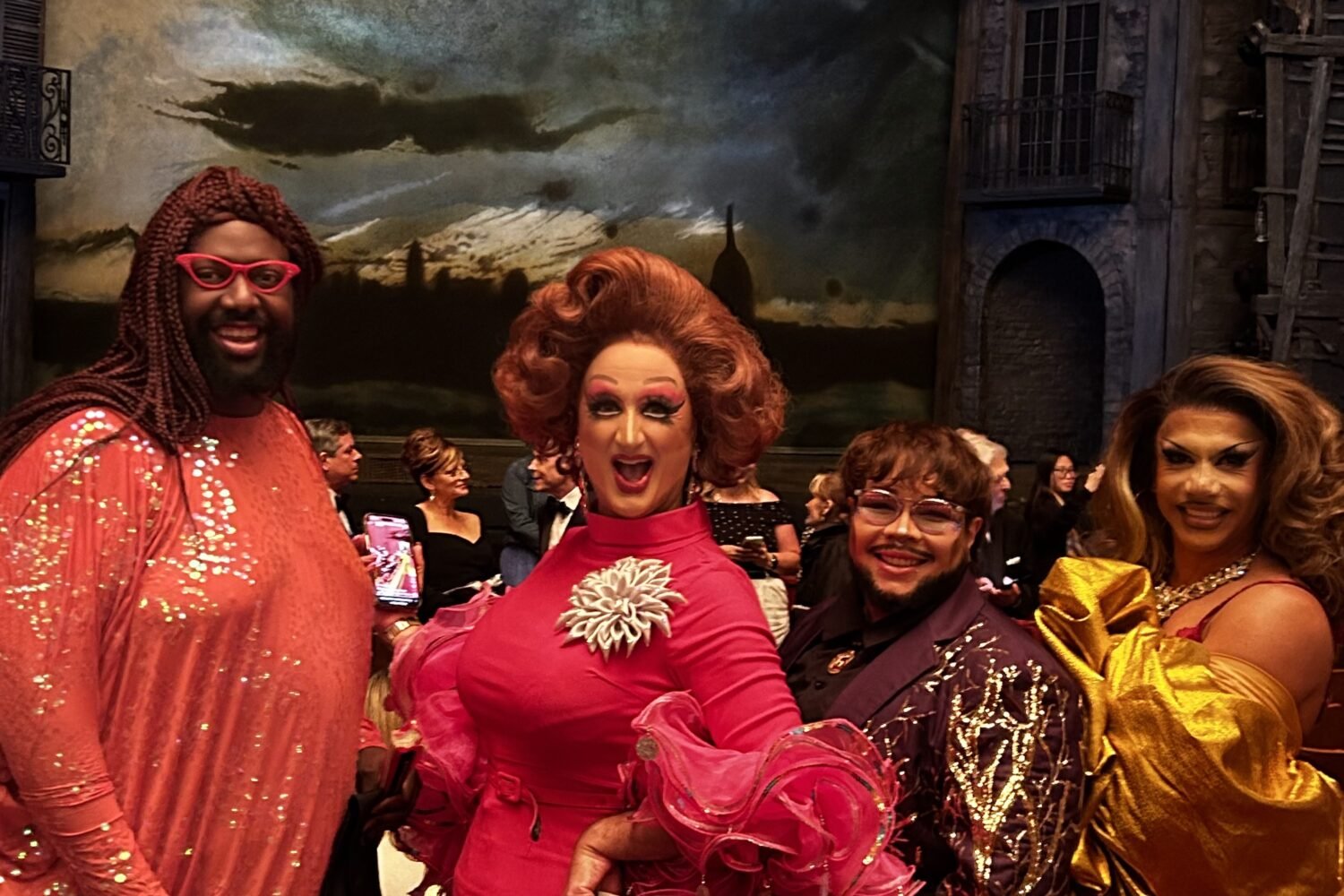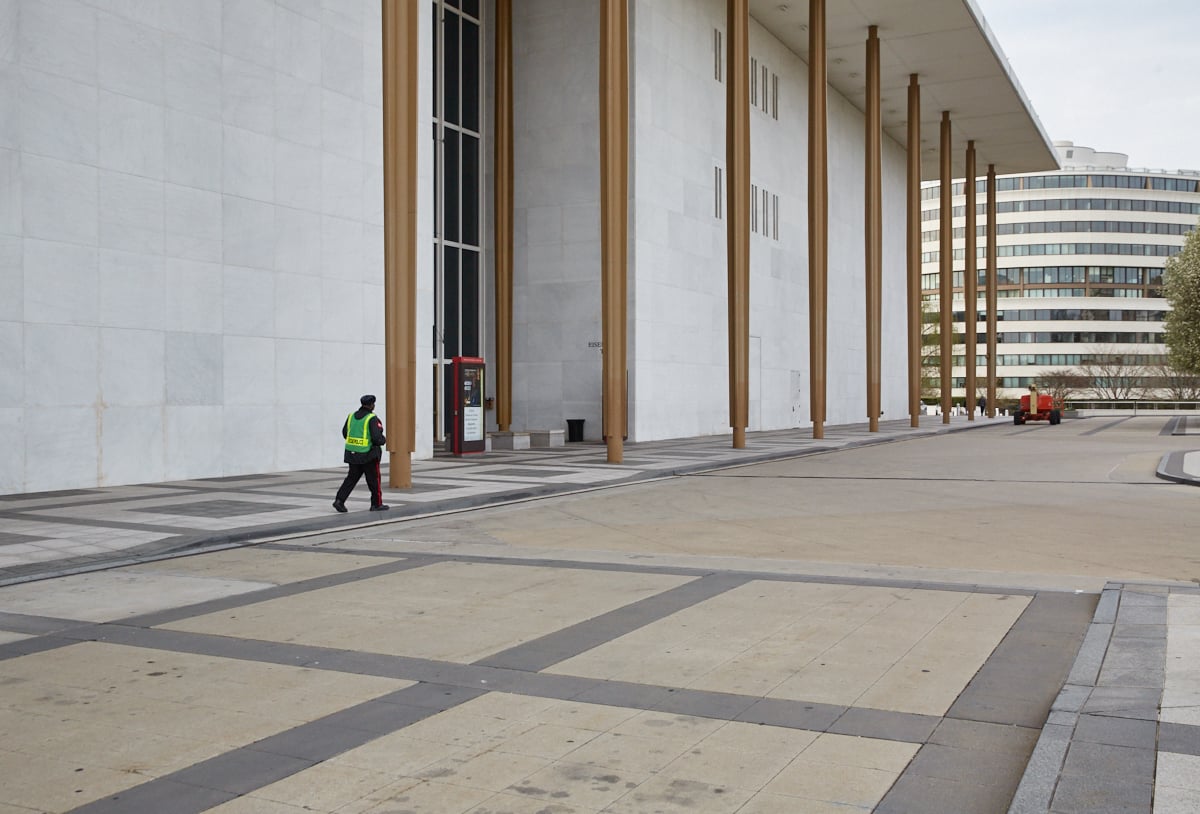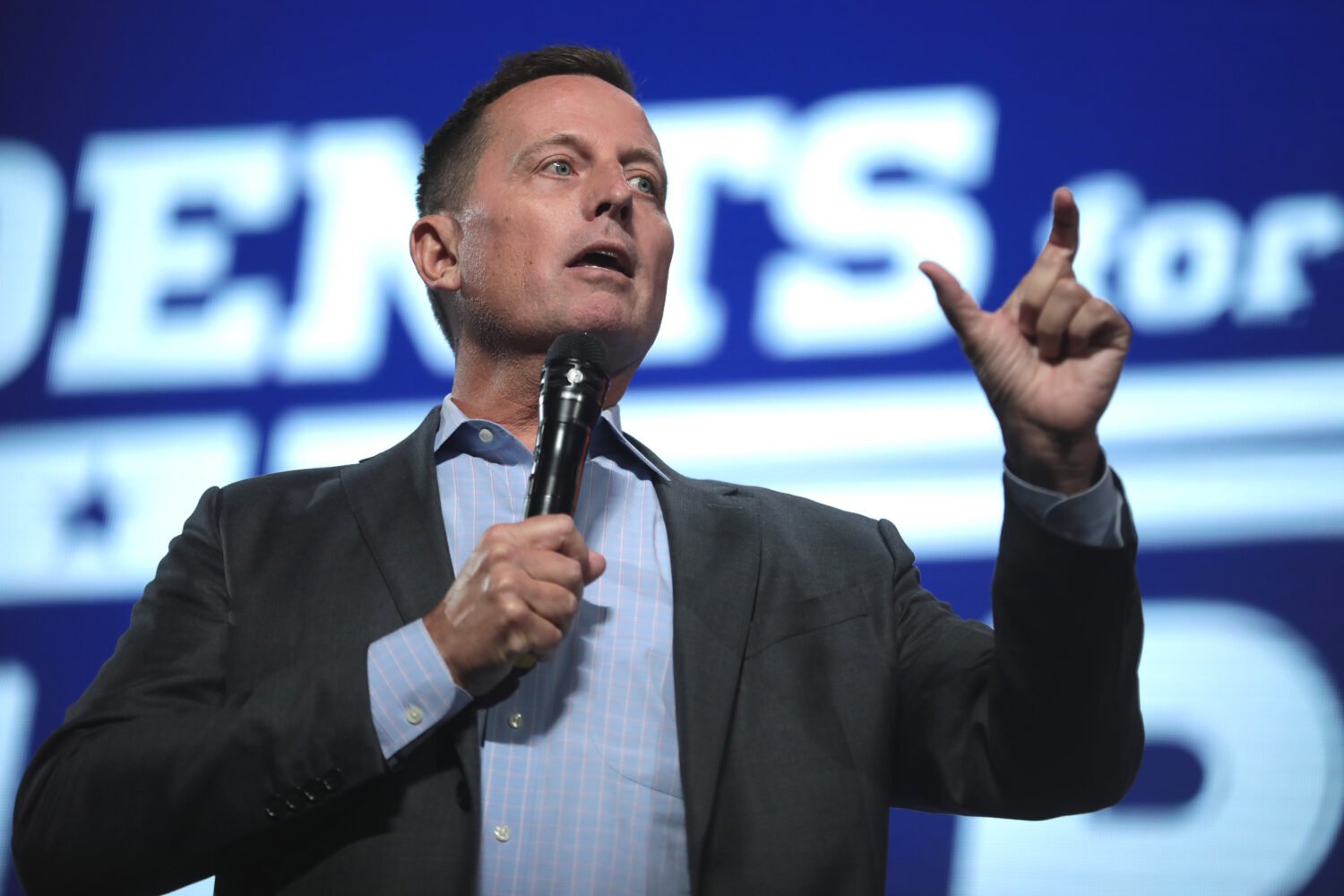About Coronavirus 2020
Washingtonian is keeping you up to date on the coronavirus around DC.
Earlier this week, the Kennedy Center announced that it’s canceling almost all of its remaining programming for 2020 due to the ongoing Covid-19 crisis. It’s a huge blow for the institution, and the resulting loss of revenue—which the Kennedy Center estimates will top $45 million—threatens to have a lasting impact even after the pandemic eases. At the same time, plans are in the works for some new, smaller-scale events that could bring live music in some form back to the building in the near future. We talked to Kennedy Center president Deborah Rutter about what the last few months have been like and what comes next.
So how are you holding up?
That’s the question for everybody, right? If it weren’t for the fact that I walk my dog three times a day, I would probably go insane. The lack of human engagement when you’re used to so much is so difficult. It is very, very painful to be in the process of this slow, constant [question of] “when are we going to be able to open up?” It’s a daily rollercoaster. You think you’ve got a plan, you think you know what’s going to happen next, and then things change again. People talk about being bored, right? I keep thinking, wouldn’t it be nice to be bored? [Laughs] I’m not bored, that’s for sure.
You obviously didn’t wake up on New Year’s Day imagining that almost all of your programming would be canceled for the whole year. What did it feel like to go through that, seeing everything evaporate?
It is devastating—not just to me personally but devastating for my colleagues. The fact that so many of my colleagues are not at work [due to furloughs] and so many of our collective dreams are on hold is what’s really hard. The Covid crisis started at the Kennedy Center a lot earlier than March, because the National Symphony was [set for a spring tour of] China and Japan. So we started paying attention to what was going on in those places in January. But I will tell you, at no point did we say, oh, gosh, the Kennedy Center will be closing down for eight months. At no point did we ever imagine that.
I was really looking forward to things like the NSO’s Beethoven performances and Blue. There’s all of this stuff that is just gone.
It’s tough. Everybody has their one thing or another. I hope to be able to deliver on your Beethoven desire, though. That’s my little teaser.
This latest round of cancellations is going to result in another $45 million loss of revenue on top of a previous $45 million from earlier cancellations. What, financially, does that mean for the Kennedy Center?
Well, it is a huge impact, obviously. We are at the moment in a close monitoring of cash flow. The amazing support that we’ve had from donors and also from the CARES Act means that we are scooting by carefully in this period of time. But we’re going to have to make some really hard decisions moving forward. What most people don’t understand is that the vast majority of the work we do loses money. The opera, the orchestra, the ballet, dance, all of our education programs—it takes contributed dollars to support all of that work. To cancel some of it does mean that we lose the earned revenues [from parking and beverage sales and so forth] that go along with it, but it also means that some of your expenses go away, as well. So it’s not like we’ll see a $45 million deficit for next year. But we’re having a hard time coming up with an operating budget for next year that looks good without some really, really painful decisions coming along.
What kinds of decisions?
We have brought a number of our staff members back [from being furloughed]. Originally, the furlough we thought was going to be for six weeks. We had no idea it was going to be lasting this long. So we have brought some people back, but as we look forward and there is so little programming on the horizon, it’s going to mean that that ability to bring everybody back and get all of our programming active again is going to take a much longer time. Back in April, we though, okay, mid-May we’ll bring everybody back and we’ll get going again. We’ll have all of this programming, we’ll have the Beethoven festival, we’ll have the summer programming. And then that extended further and further.
The Kennedy Center staff are pretty extraordinary. But this is taking much longer to come back to normal but I would ever have imagined. We’re looking literally daily on operating budget and cash flow, modeling both this fiscal year and next fiscal year, in order to do our best to keep as many people as whole as possible.
When you talk about some of the programming operating at a loss, how does it work with something like Hamilton, which obviously earns a large profit? How much revenue do you see from something like that?
They take the vast majority of the revenues. We get a very small piece of the ticket sales. What we do get are all the ancillary revenues that come along with that, like parking, concessions, that kind of thing. Part of the problem with our budget for next year is we won’t have any parking revenues for the fall, other than the monthly parkers who work [nearby], and we won’t have any revenues from concessions or restaurants. We can’t rent the facility out to other users. So the impact is not just ticket revenues. It’s all these all of these ancillary revenues we have that go along with operating the building.
What keeps you up at night right now?
Projecting the budget and cash flow and what it means for the human beings who are my colleagues and the artists that we employ. That’s the hardest part. And trying to predict what the future can be. How much can we do so I can start bringing some art back into our lives in a way that’s safe for our audiences and our staff and the artists? What is the right timing to do this, how much money do I have, how can I predict what will happen?
So what will it look like when some programming does resume over the next few months? Are we talking about smaller-scale performances in larger places?
Yes, that’s exactly right. So imagine a jazz trio or a single comedian or a string quartet, and put them perhaps on the Opera House stage with the audience sitting on the stage, where you can space apart from one another so that you’re socially distanced. It may be that we also do some programs that we capture and share digitally, exclusively, for a period of time. So we’re being very creative about what we might be able to do. We’re going to do our best to do some small-scale programming. Now that we know that we’re in phase 2 and we can imagine phase 3 in the immediate future, we’re going to get our ideas more formalized and then share that.
I assume you’ve been following what Washington Performing Arts is doing with their all-online season. Have you thought about selling tickets to streaming events like that?
We have not pursued that as actively. I’m very excited to follow what they’re doing. We are eager to look towards the live experience and then do some sort of high-end sharing of content in that way. I don’t know that we’ll do as much of that as we will try and provide different kinds of live experiences.
Early on in the shutdown, you got a lot of criticism, including some anger over how things were handled with furloughs and the NSO. What did you learn from that experience?
Probably the most important learning is that complex stories are not easily told in soundbites. We are an extremely complex organization with 16 unions, the wide variety of programming that we offer, the revenue sources that we have. And that complexity most people don’t understand. These are very complex decisions and this is a very emotional time for folks, especially right at the beginning when we were all in the shock mode. And that complexity of our story is one that we know that we need to tell and have greater transparency on. There are a lot of people with a lot of different opinions and perspectives, and I recognize and appreciate that.
Are there things you would’ve done differently had you known what the reaction would be?
[Pause.] Well, you’re asking me a question that nobody has really asked me that specifically. Let me think about this a minute. You know, timing is always the most difficult in these circumstances. We were dealing with the emergent issue of the stay-at-home [order] and recognizing the financial issues and what our options and levers were for those issues. I think if we had the ability to do all of this in hindsight, timing is probably the issue that worked against us most. And the fact that we couldn’t actually meet in person with [the staff that was being furloughed]. So the subtleties of conversations were lost because we were doing everything remotely from one another.
Communications and human interactions all work in different ways. Arts organizations seem so innocent, I think, from the outside as you look in, and we are a very, very complex business model. So in a perfect world, some of our decisions would be communicated in different ways, in person, and you could build confidence by having a shared strategy moving forward. The circumstances were really challenging, as you can imagine. And continue to be.
The people who you were dealing with were also scared and don’t know what’s happening.
Yes, that’s exactly right. I’m not trying to write the case study on Deborah Rutter’s decision and when we did what. It’s too early still to tell on that. But we wanted to make sure that we were in a position to be stronger and healthier when we return rather than depleted and without staff. It’s tough! I’ll tell you, it wasn’t fun.
What is giving you hope right now?
What really is exciting to me is that I believe artists and those of us who support artists provide a lens on who we are as individuals and as a society. I truly believe that. This has really challenged us more deeply than I have ever experienced. Certainly 9/11 changed all of our lives. I believe that this will have as much, if not more, impact on the way we think about gathering as people, the way we cherish our experiences with one another. My fervent belief is that on the other side of this we will cherish these moments and these experiences even more. We do absolutely have to think carefully about when we can get back to having the fulsomeness of being 2,000 people in one space. But I believe the combination of the tragedy of the pandemic together with the experiences [resulting from the George Floyd protests] that we’re having in the streets and the conversations that we’re having in our homes and online and in other ways to really understand what issues of racism in this country really represent—we as artists and supporters of artists can make a huge difference. So that’s what gives me hope. That’s what inspires me to keep moving forward, because some of the decisions otherwise that we have to make are pretty tough ones.
This interview has been edited and condensed.

